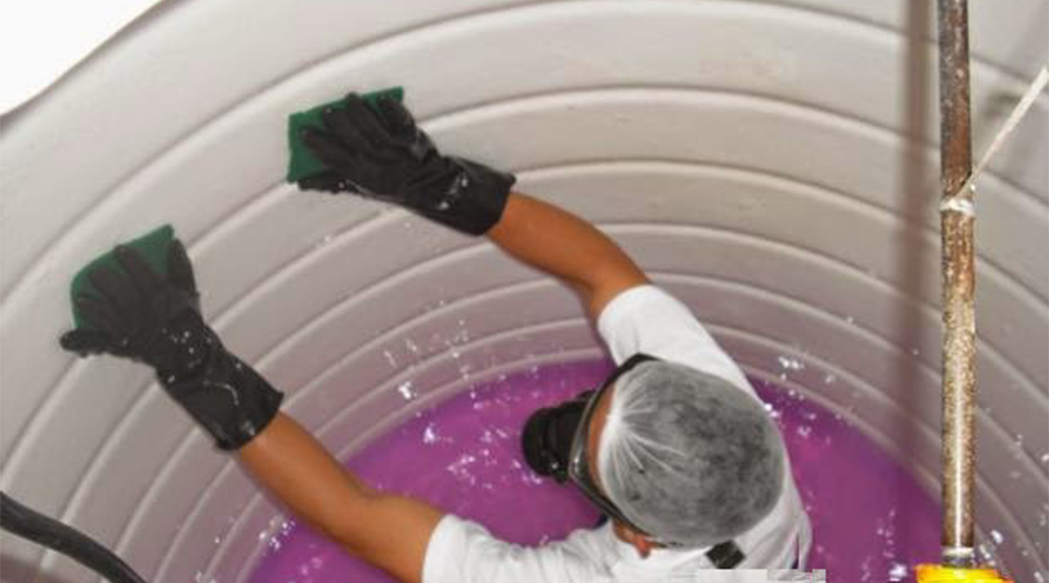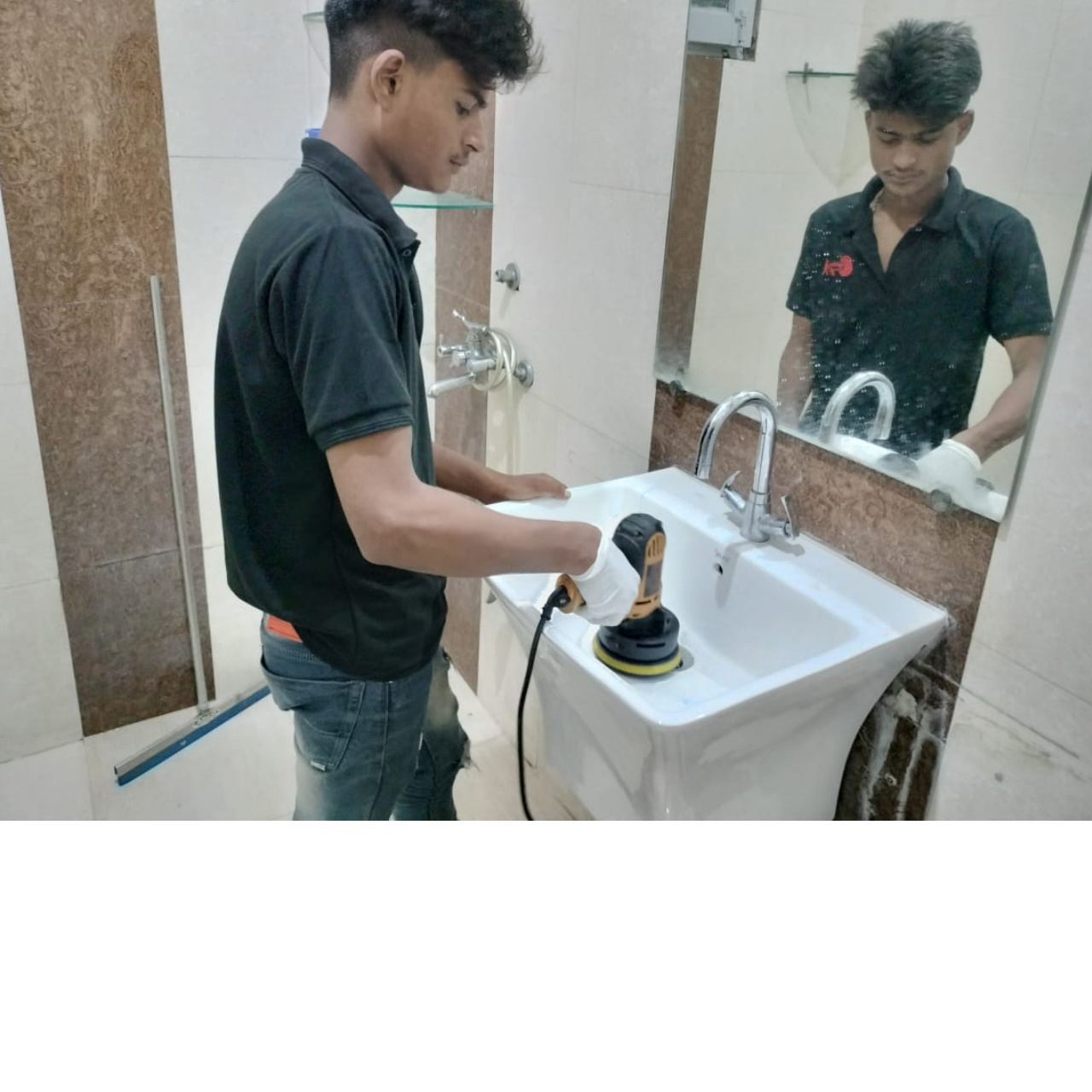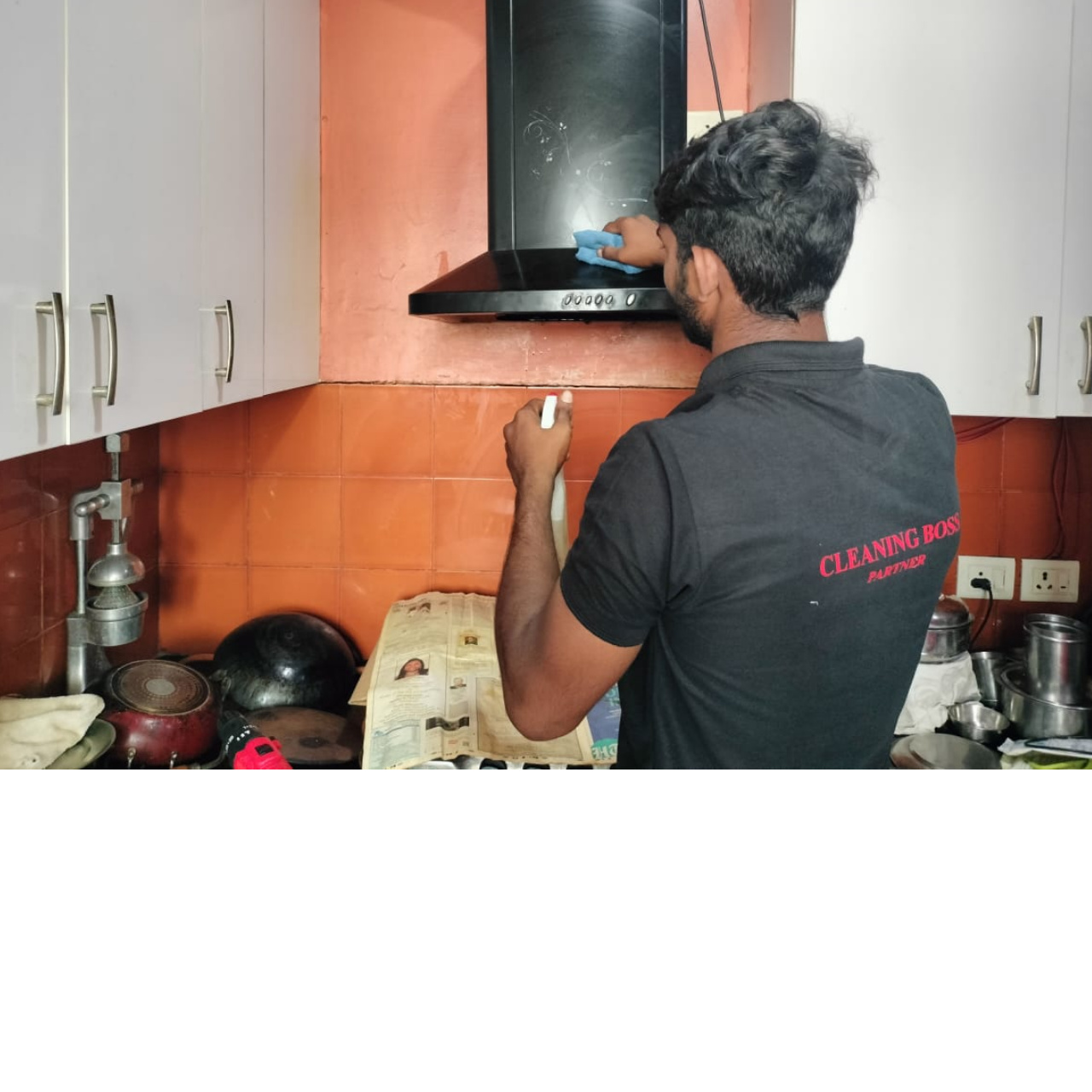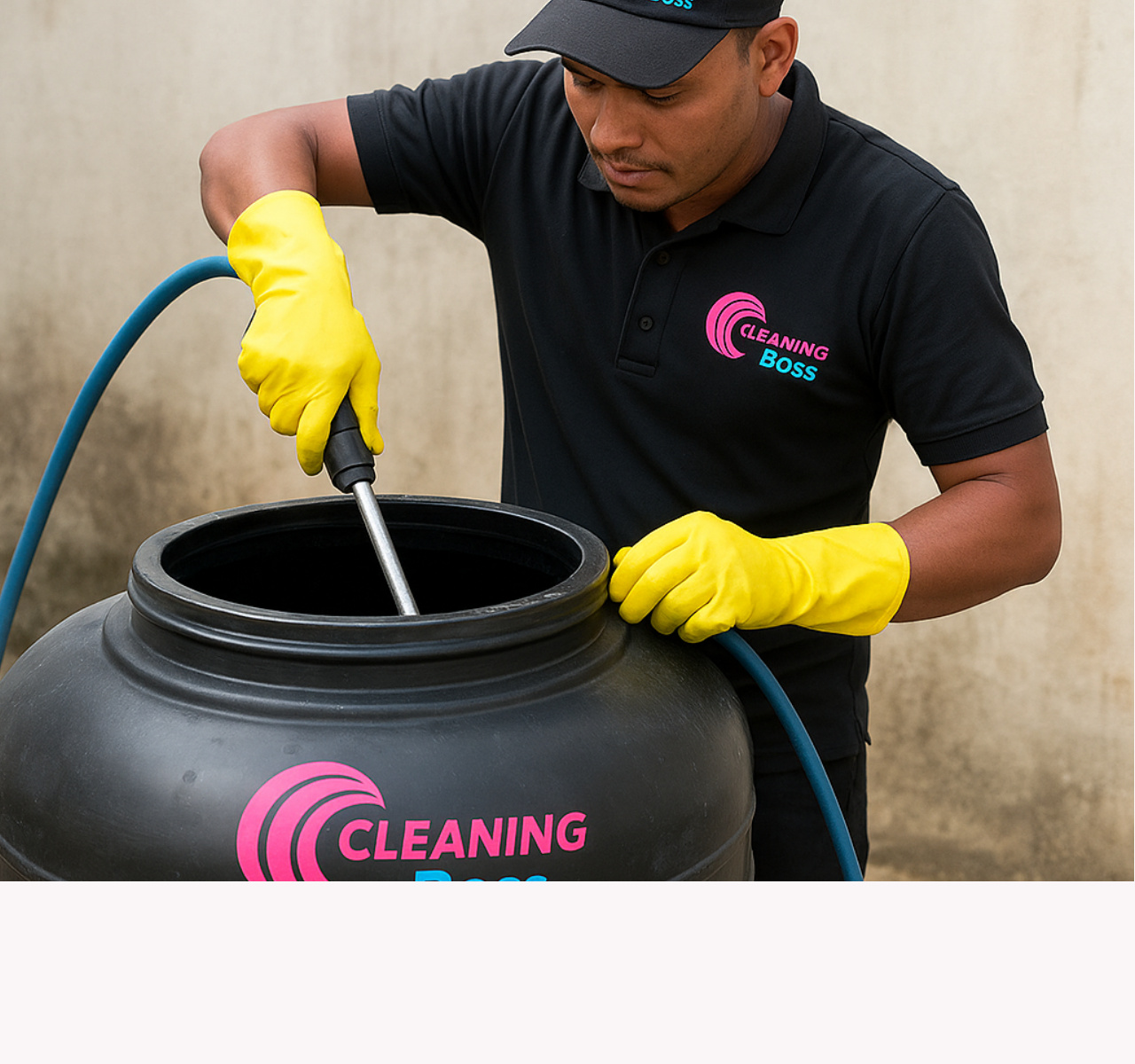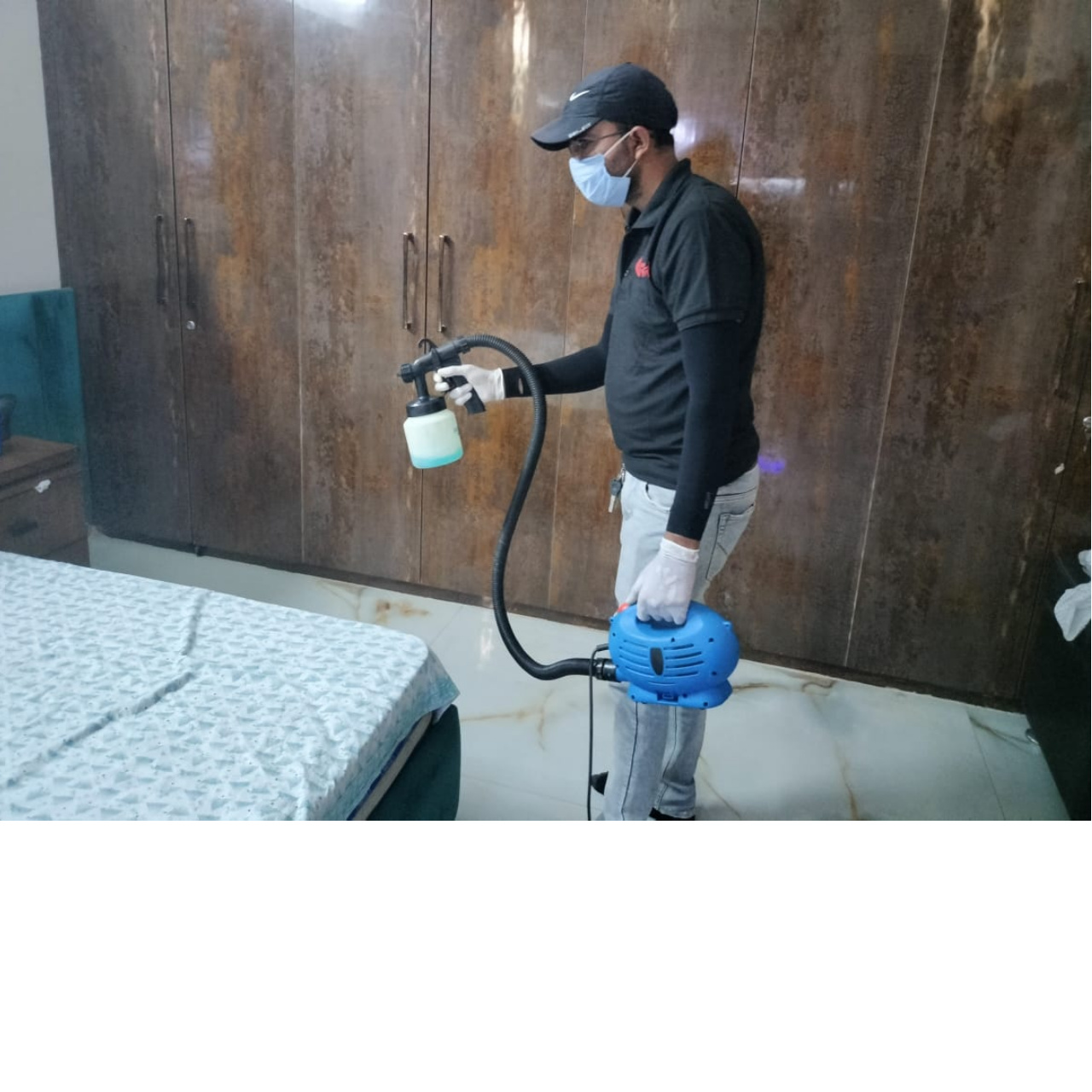Water Tank Cleaning Services in Gurgaon
Water is the essence of life, and the quality of the water we consume directly impacts our health and well-being. Most of us take for granted the availability of clean and safe drinking water from our taps, but have you ever considered the journey it takes to reach your glass? Water storage tanks play a pivotal role in ensuring a constant supply of clean water to our homes and businesses. However, these tanks can become breeding grounds for contaminants and bacteria over time, highlighting the crucial need for water tank cleaning services.
The Role of Water Tanks
Water tanks are an integral part of any water supply system, whether for residential or commercial purposes. These tanks store water that comes from various sources, such as municipal water supplies, wells, or rainwater harvesting systems. The stored water undergoes treatment processes before entering the tank to make it safe for consumption. However, the cleanliness of the tank itself is equally important in maintaining water quality.
Ensuring Pure Hydration: The Importance of Water Tank Cleaning Services
Water is the essence of life, and the quality of the water we consume directly impacts our health and well-being. Most of us take for granted the availability of clean and safe drinking water from our taps, but have you ever considered the journey it takes to reach your glass? Water storage tanks play a pivotal role in ensuring a constant supply of clean water to our homes and businesses. However, these tanks can become breeding grounds for contaminants and bacteria over time, highlighting the crucial need for water tank cleaning services.
The Need for Regular Cleaning
Over time, water tanks accumulate sediment, debris, and microbial growth that can compromise water quality. This accumulation can lead to several issues, including:
Contamination: Sediment and debris in the tank can introduce harmful bacteria and pathogens into the water supply, potentially causing waterborne illnesses.
Reduced Efficiency: Dirty tanks can decrease the efficiency of water pumps and filters, leading to increased energy consumption and maintenance costs.
Foul Odors and Taste: Microbial growth can produce unpleasant odors and tastes in the water, making it unpalatable for consumption.
Equipment Damage: Sediment and debris can damage pipes, valves, and other water system components, resulting in costly repairs.
Water tank cleaning is a vital and often overlooked aspect of maintaining a safe and healthy environment. While the importance of clean drinking water is universally understood, the role of the water tank in ensuring its quality is not always recognized.
Here are some unique reasons why water tank cleaning is so important:
Preventing Contaminant Build-Up: Over time, sediments, minerals, and organic matter can accumulate in water tanks. This build-up can serve as a breeding ground for harmful microorganisms like bacteria, algae, and fungi. Cleaning the tank regularly helps prevent these contaminants from entering your water supply.
Ensuring Water Quality: Clean water is essential for our overall health. Contaminated water can lead to various waterborne diseases, including diarrhea, cholera, and gastroenteritis. Regular tank cleaning removes potential sources of contamination, ensuring that the water remains safe for consumption.
Maintaining Water Clarity: Dirty water tanks can lead to discolored or murky water. This not only affects the aesthetics of the water but also indicates a potential health hazard. Cleaning the tank can improve water clarity, making it more visually appealing.
Extending the Lifespan of Equipment: Sediment and scale deposits can accumulate in water heaters, plumbing, and appliances that use water. These deposits can reduce the efficiency of equipment and even cause damage over time. By keeping the water tank clean, you can extend the lifespan of these appliances and save money on repairs or replacements.
Reducing Energy Consumption: When sediment builds up in water heaters, it acts as an insulator, making it harder for the heating element to transfer heat to the water. This leads to increased energy consumption and higher utility bills. Regular tank cleaning can improve energy efficiency by allowing heaters to operate more effectively.
Complying with Regulations: Many regions have regulations and guidelines regarding water quality and tank maintenance. Failure to comply with these regulations can result in fines or legal consequences. Regular tank cleaning ensures you meet these requirements and avoid potential penalties.
Preserving Water Taste and Odor: Stagnant water in a dirty tank can develop unpleasant tastes and odors. Cleaning the tank can help maintain the natural taste and odor of the water, making it more enjoyable to drink and use for cooking.
Preventing Corrosion: Sediment and mineral deposits can promote corrosion within the tank and plumbing system. Corrosion can lead to leaks, which can cause structural damage to your property. By keeping the tank clean, you can reduce the risk of corrosion-related issues.
Environmental Responsibility: Neglecting water tank maintenance can result in the wastage of water due to contamination or leaks. Responsible water tank cleaning practices help conserve this precious resource and reduce the environmental impact of water usage.
Benefits of Professional Water Tank Cleaning Services
Water Quality Assurance: Professional cleaning services ensure that your water tank remains free of contaminants, ensuring the delivery of clean and safe water to your taps.
Health Protection: Regular cleaning helps prevent waterborne diseases and ensures the well-being of your family or employees.
Extended Equipment Life: Clean water tanks lead to less wear and tear on water system components, reducing the need for repairs and replacements.
Cost Savings: By maintaining water quality and equipment efficiency, you can save money on water bills and maintenance expenses.
Compliance: In many areas, regular water tank cleaning is a legal requirement to meet health and safety standards. Professional services can help you remain compliant.
Why professionals required for water tank cleaning
Professionals who provide water tank cleaning services should offer unique and specialized content for several important reasons:
Safety: Water tank cleaning involves handling potentially contaminated water and chemicals. Professionals need to provide unique content that emphasizes safety procedures, precautions, and guidelines to protect both themselves and their clients. Tailored content can highlight specific risks and precautions relevant to different types of water tanks and contaminants.
Compliance: Different regions and countries have varying regulations and standards for water tank cleaning. Professionals must stay up-to-date with the latest compliance requirements and provide unique content that addresses the specific rules and guidelines relevant to their service area. Failure to comply with regulations can lead to legal issues and health hazards.
Customization: Not all water tanks are the same. Professionals encounter a wide range of tank types, sizes, and conditions. Offering unique content allows them to tailor their advice and recommendations to each client's specific needs. This level of customization ensures that the cleaning process is effective and efficient.
Education: Unique content can serve as an educational resource for clients and the general public. Professionals can use their knowledge and experience to create content that explains the importance of regular tank cleaning, the risks of neglecting maintenance, and the benefits of their services. Educated clients are more likely to invest in professional cleaning services.
Problem-solving: Professionals may encounter unique challenges during water tank cleaning, such as stubborn contaminants, corrosion, or structural issues. They need to provide content that discusses these challenges and offers solutions. This can help build trust with clients by demonstrating their expertise in overcoming difficult situations.
Types of tank that professionals Cleaning Boss can clean
Professionals can clean various types of tanks, depending on their specialization and equipment. Tank cleaning is essential in various industries to maintain hygiene, prevent contamination, and ensure the safe storage of liquids or materials.
Industrial Storage Tanks: These are used to store chemicals, fuels, oils, and other industrial fluids. Professionals often clean these tanks to remove residue and prevent corrosion or contamination.
Water Tanks: Water tanks, whether for residential, commercial, or industrial use, need periodic cleaning to remove sediment, algae, bacteria, and other contaminants that can affect water quality.
Wastewater Treatment Tanks: Tanks used in wastewater treatment facilities, such as sedimentation tanks, aeration tanks, and clarifiers, need cleaning to remove sludge and maintain efficient operation.
Septic Tanks: Septic tanks in residential and commercial properties need periodic cleaning to remove solid waste and ensure proper functioning of the sewage system.
Steps Involved in Water Tank cleaning
Cleaning a water tank is essential to ensure the quality and safety of the water it stores. Regular maintenance helps prevent the buildup of contaminants and ensures clean and safe water for various purposes. Here are the steps involved in cleaning a water tank:
Preparation:
Gather all the necessary equipment and materials, including safety gear like gloves and masks, a ladder, a flashlight, cleaning brushes, disinfectant, and a hose.
Isolate the Water Supply:
Turn off the water supply to the tank to prevent any water from entering or leaving the tank during the cleaning process.
Drain the Tank:
Open the tank's drain valve or tap to empty the tank completely. Ensure the water flows to an appropriate drainage area or container.
Remove Any Sediment:
Use a brush or vacuum to remove any sediment, debris, or sludge that may have settled at the bottom of the tank. Be thorough in cleaning this area as it's where most contaminants accumulate.
Scrub the Tank Interior:
Using a long-handled brush or scrubber, thoroughly clean the interior surfaces of the tank, including the walls and the lid if applicable. Pay special attention to areas with visible buildup or discoloration.
Rinse the Tank:
Use a hose to rinse the tank thoroughly, removing any remaining dirt, debris, or cleaning agents. Ensure all residues are completely washed away.
Disinfection:
Prepare a disinfecting solution as per recommended guidelines. Common disinfectants include chlorine bleach or specialized tank cleaning solutions.
Fill the tank with the disinfectant solution and allow it to sit for a specified contact time (usually 2-4 hours).
After the contact time, use a hose to thoroughly rinse the tank to remove the disinfectant. Ensure there is no residual disinfectant left in the tank.
Sanitizing the Lid and Surrounding Area:
Clean and disinfect the tank's lid or cover, as well as the area around the tank to prevent contaminants from entering when the tank is in use.
Inspect for Damage:
Inspect the tank for any signs of damage, such as cracks, leaks, or corroded areas. Repair or replace any damaged components.
Refill the Tank:
Once the tank is clean, disinfected, and inspected, refill it with fresh, clean water. Ensure the water source is safe and reliable.
Turn the Water Supply Back On:
Reopen the water supply valve to allow water to flow into the tank.
Flush and Test:
Open taps or fixtures connected to the tank and let the water flow for a few minutes to flush out any residual disinfectant and ensure the water is clear and safe to use.
Get in touch with us for the Best and Affordable water tank Cleaning Services in Gurgaon. For more information contact Cleaning Boss on given website numbers...
